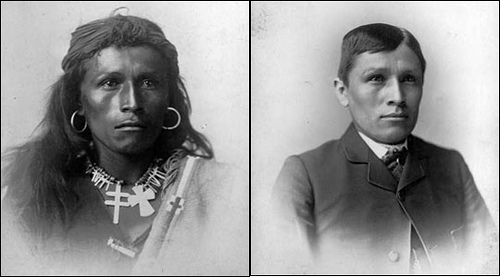The last part of Things Fall Apart demonstrates the extent of Okonkwo’s unwillingness to change and highlights several ironies throughout the novel.
After being arrested and beaten by the missionaries, Okonkwo’s anger and resentment for them increased exponentially. As a brutal and violent man who often beat his wives and children, it is ironic that when he faced the same acts of cruelty, he found them intolerable. “…He thought about the treatment he had received in the white man’s court, and he swore vengeance” (199). Another irony that exists in the novel centers on Okonkwo’s last act as a man. He chose to commit suicide and shirked the consequences of his actions. Despite being a man that deeply advocated for masculinity and mental and physical strength, his last act on earth is considered one of cowardice, in American culture and in his culture.
Part three of the novel also shows the wrongdoings of western people. Achebe used characters like Mr. Brown, Reverend Smith, the Commissioner, and the messengers to represent the virtues and the immoralities of western culture. Mr. Brown represented the merits of western society and the civility, compassion, and opportunity that can be offered to less privileged societies. However, most of the novel’s westernized characters demonstrated the worst of human nature. Reverend Smith is used as a foil to Mr. Brown. He wanted to annihilate the established culture in the village while Mr. Brown simply wanted to enhance it with Christianity and education. The messengers represented the corruption inevitable in a society that is not ruled by fear, and the Commissioner represented the arrogance and self interest that many people in modern societies exhibit. “He had already chosen the title of the book…The Pacification of the Primitive Tribes of the Lower Niger” (209).
Unexpectedly, Okonkwo and the Commissioner are very alike. Both of their actions are driven by pride: the most present sin in the novel.
People of western society have committed the atrocities described in the book. This picture of a Native American that was "civilized" shows this dark part of American history.
